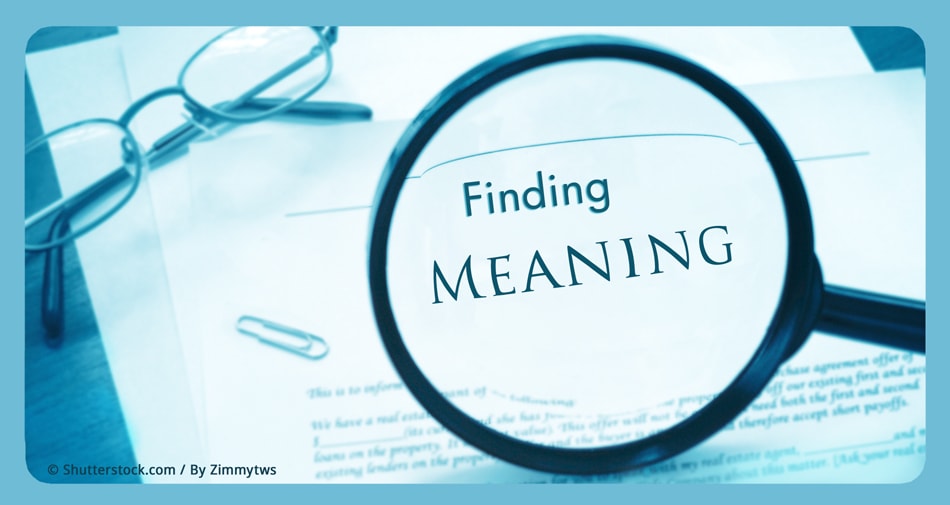
Guest Post – Finding Meaning in a Legal Career
by Aly Haji, August 22, 2019.
Introduction from Inter Alia: This month’s blog post is a guest post by Aly Haji, who recently completed his clerkship at the Supreme Court of Canada, and is working with us at Inter Alia Law this summer as our “Strategist-in-Residence”. Aly has a pharmacy degree from the University of Toronto, and a joint Civil Law/Common Law/MBA from McGill University. He will be pursuing a Master’s in Law at the University of Cambridge in the UK after finishing his term at Inter Alia.
Since we all talk a fair bit about finding meaning in our work around here, we thought Aly’s take on this, being new to the profession, would make sense to share with others.
This post is also going to kick off our next blog series, in which we’ll be talking about the role that finding meaning in our work plays in our overall well-being.
***
I just finished a clerkship at the Supreme Court of Canada. It feels surreal to write those words. That’s only partially because of a sense of “I can’t believe I did it” sentimentality; though I fully appreciate the inordinate amount of time and effort I’ve invested in getting to this point. Rather, it’s something that a few former clerks – who are now leaders in the profession – have often repeated: that the clerkship is the “pinnacle” of your career.
I do feel extremely privileged to have had the opportunity to undertake the immense honour and invaluable learning experience that is a Supreme Court clerkship. Working at the Supreme Court was extremely challenging and intellectually stimulating. I was able to work on complex legal and social issues going to the core of our society. It was an amazing experience. Yet instead of looking back on the past year with fond memories and optimism about the future, I’m trepidatious. Why?
Pushing past the prestige, and the promises of high salaries, I think that most of us went to law school in the first place – at least in some part – because a law degree would allow us to make a difference and effect real social change. The ability to make an impact for our clients should continue to be a driving force in defining our careers as lawyers. It should also inform the way we approach practice, regardless of our practice area or type of practice.
This is, ultimately, how we find meaning in our careers. And meaning is important. My own research (for a summary see: https://www.linkedin.com/pulse/5-key-insights-from-millennial-exodus-law-firms-aly-r-h) suggests that millennial lawyers overwhelmingly want to do work that is meaningful and substantive. Respondents to that study even indicated that they were overwhelmingly willing to accept lower salaries, and even sacrifice the prestige of their workplace, to do more meaningful and impactful work. This results in higher levels of self-fulfillment, personal satisfaction and happiness. In this way, doing meaningful work means that the stereotypical “soul crushing” (as described by study participants) practice of law transforms into something more rewarding and fulfilling.
And yet the majority of lawyers don’t pursue meaning in their work. It seems to me so far, and from my research prior to my clerkship, that the majority of lawyers work in law firms where they are not in control of the work they do. They choose their workplace to fill an immediate economic need (e.g. paying student debt); not to pursue an area of the law in which they are passionate or interested, or to find meaning in their work. While some of these lawyers undoubtedly end up finding meaning in their work, the larger point remains that lawyers by and large neither look for nor prioritize meaning in their work. The fact that very little (if anything) has been done to change this, despite the fact that both lawyers themselves and leadership at law firms acknowledge this (in my study), is very telling. As is the high attrition of associates after the first few years of practice.
I think this is what is to blame for my current state of anxiety. The depiction of the clerkship as the “pinnacle” of one’s legal career just hits too close to home. At the Court, we are constantly engaging with complex and important legal issues critical to our social fabric. Our work is important. It has meaning. Compared to the drudgery that is often a hallmark of descriptions of conventional legal practice, the clerkship does, indeed, seem like it might be the high point of my legal career. But I can’t accept that I’ve reached my peak only a few weeks after being called to the bar.
So like most lawyers, I’m searching for a way to make an impact through my work.
But there does appear to be good news. In the year I’ve worked at the Court, the career options for lawyers looking to find meaning seem to have grown substantially. Discussions with leaders at firms indicate efforts to integrate new strategies within the traditional framework. The emergence and growth of new and innovative models like Inter Alia Law, which have the potential to fundamentally reshape the nature and landscape of the legal profession, is even more promising.
In short, there appear to be more opportunities which allow lawyers to find meaning, in both their work and their life. Though significant work undoubtedly is still needed, progress is being made. And, while I’m still wary about the future, all this progress gives me hope. Hope that the legal profession will continue to pioneer and grow different practice approaches, as seen at Inter Alia. Hope that I will be able to find meaning practicing law in the future. And hope that my clerkship at the Supreme Court will not be the pinnacle of my career, but simply one of many high points.
We welcome your input at any time.
Find us on Twitter, LinkedIn and Instagram or listen to us talk more about these ideas on the Lawyer Life Podcast (LLP).

